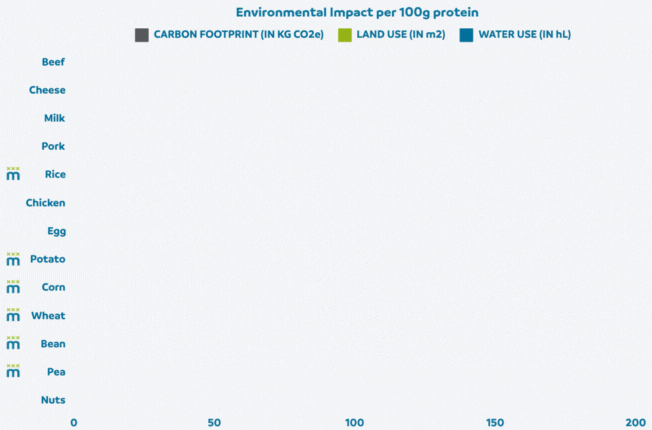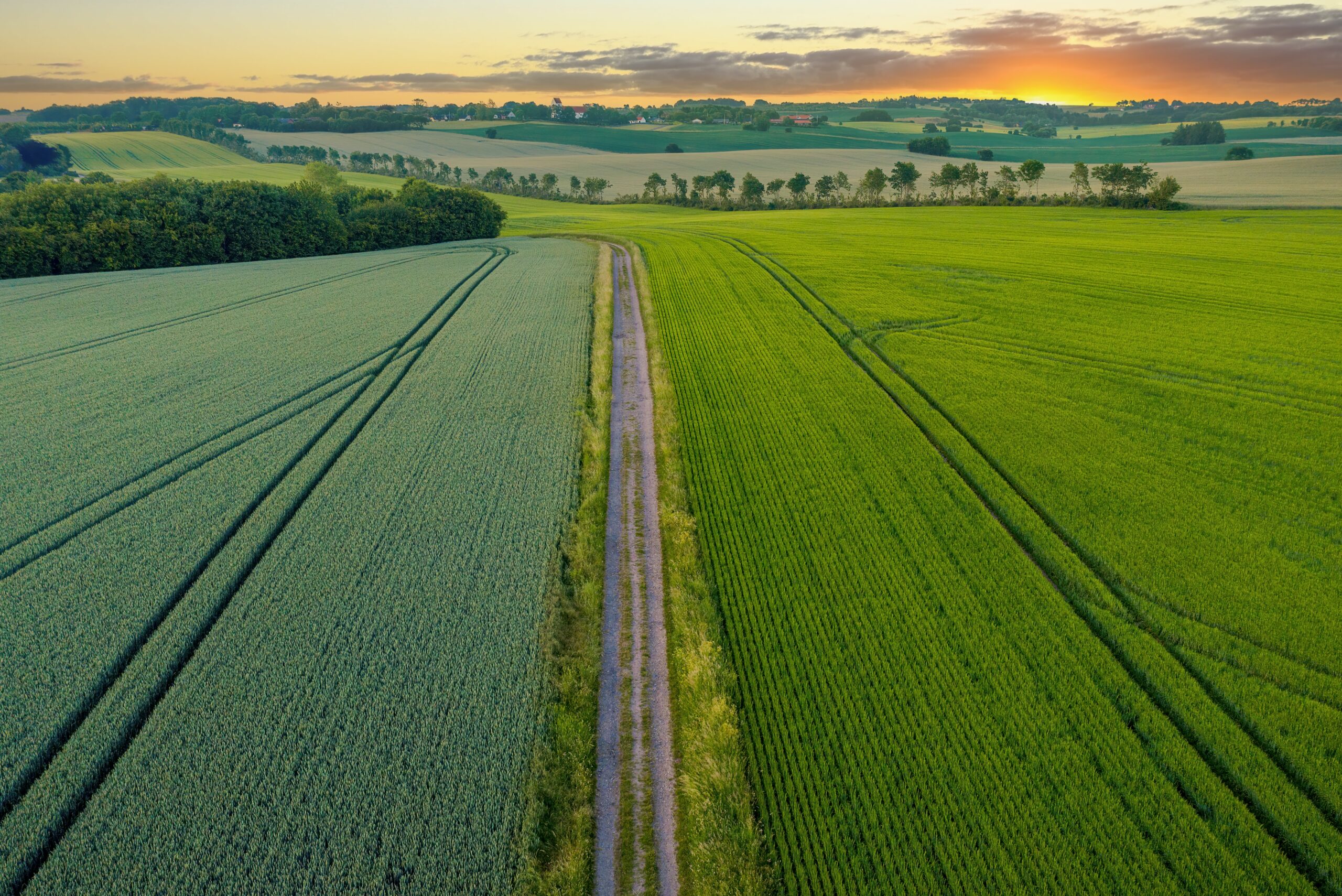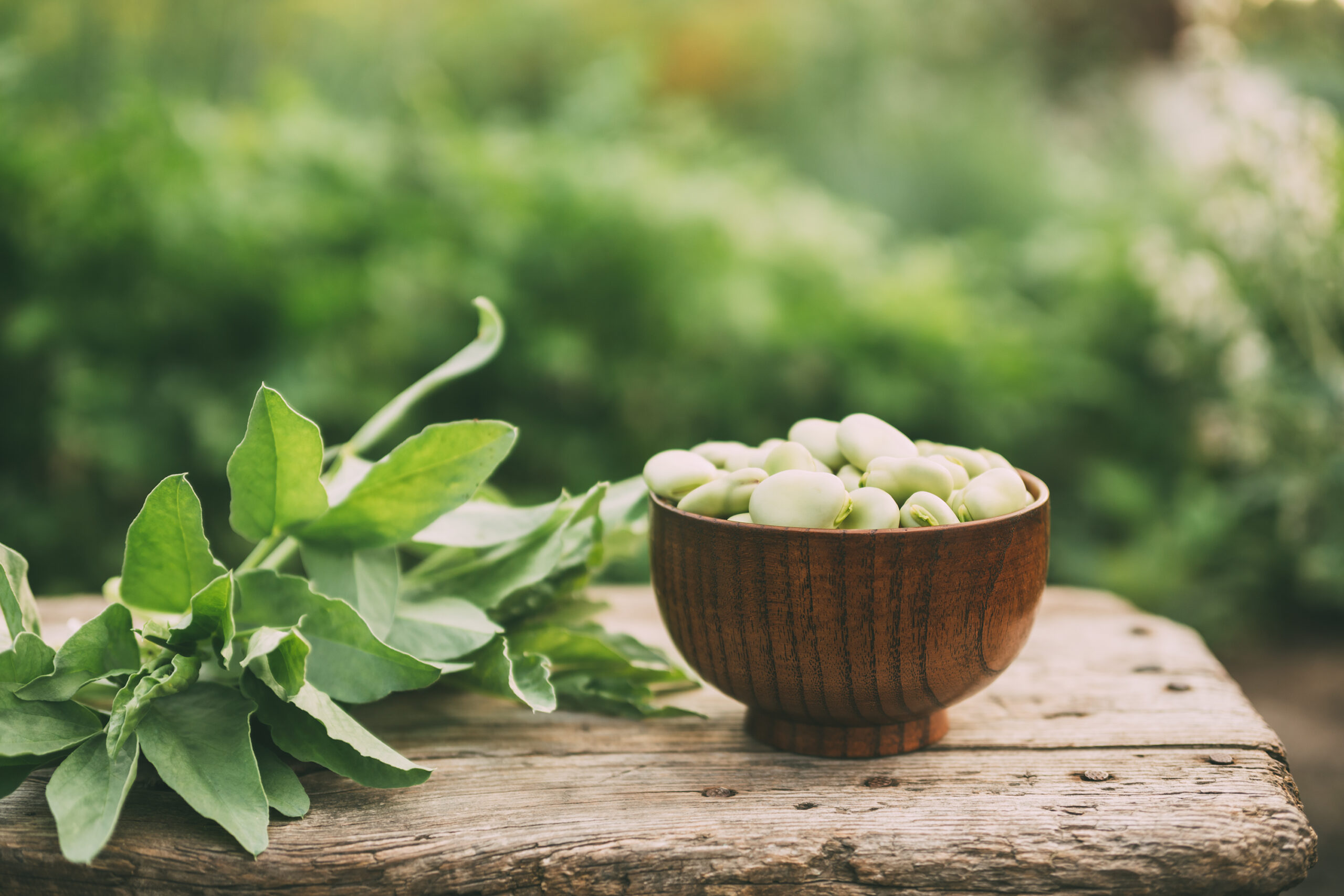100% plant based
Green products

It is time to rethink how we grow, share and consume our food. At Meelunie, we are committed to ethical business practice, decent conditions for workers throughout the value chain, and a focus on responsible products and processes. We want to accelerate the protein transition so that more diets include plant-based ingredients, and become nutritious and healthy. If done right, agriculture can provide food for all and generate decent incomes, while supporting people-centered rural development and protecting the environment. We also invest in regenerative agriculture techniques, and provide organic and non-GMO ingredients that benefit local biodiversity.


Protein Transition
The protein transition represents a fundamental shift in the way we approach nutrition and sustainable food production. By transitioning the world from traditional animal-based proteins towards more sustainable plant-based protein sources we are helping address a range of global challenges. These include climate change, by having a lower environmental impact; better animal welfare; and less hunger, by providing alternative to animal-based proteins to feed a growing global population. For Meelunie, the protein transition also presents an opportunity to develop innovative and nutritious plantbased proteins. Plant-based proteins generally have a lower environmental impact, making them a great option for a sustainable food system.


Our role in this transition
At Meelunie, we believe we can accelerate the protein transition by helping to meet the growing demand for plant proteins and diversifying our protein portfolio. Through investments in research and development, we strive to offer innovative plant-based proteins that have better functionality, nutrition and/or taste. In doing so, we are creating a versatile range of food applications for our plant-based proteins, enhancing their accessibility. We are dedicated to raising awareness about the benefits of plant-based proteins and actively advocate for their inclusion in diets. We work together with our customers to encourage and facilitate their widespread and effective use in product applications.

The game changer; Fava Beans
To support our role in the protein transition, in 2024 we are launching four highly innovative fava ingredients derived from fava beans (also known as vicia faba, broad bean or faba bean) from our new facility in Denmark where sustainability is fully integrated into our business model. We developed a process methodology that highlights the neutral appearance and taste of the fava bean without harming the nutritional or functional properties of its fractions. Resulting in perfect ingredients for a wide range of food applications, from meat and dairy alternatives to sports nutrition.

Organic & non-GMO
To further expand our innovative offerings, we’re not only focusing on sustainable ingredients but also on ensuring they meet the highest standards of purity and environmental responsibility. Alongside our new fava-based ingredients, we are proud to offer Organic and non-GMO certified options. Our non-GMO ingredients are cultivated without the use of genetically-modified seeds or organisms, and our products are certified by The Non-GMO Project. Taking things a step further, we offer organic certified ingredients, certified by SKAL and OTCO. These organic ingredients are grown and processed without the use of synthetic pesticides, fertilizers or GMO, which benefits local biodiversity
Q&A Green Products
Green products are in general identified by serving two basic goals – reducing waste and maximizing resource efficiency. Our Meelunie products are therefore defined as being green when they are produced and used in a way that it minimizes its environmental impact during its whole life-cycle even after it’s of no longer of use. We have listed the most frequently asked questions about our green products.
-
What’s the difference between animal and plant-based proteins, and why does it matter?
Plant-based proteins typically have a much lower environmental impact than animal proteins, as they generally require less water and land, and produce fewer carbon emissions. Another key difference is how they’re used in the food system: instead of using plant proteins to feed animals and then consuming the animal protein, the plant-based proteins themselves are consumed.
Rearing animals for meat and dairy products involves feeding them compound feed that’s partly made from byproducts and soybeans. Data shows that, for example, 15% of a cow’s diet consists of soy. Most soybeans come from South America, where their cultivation is often linked with deforestation and the destruction of natural habitats. This is driving a loss of biodiversity in some of the world’s most precious and fragile environments, such as the Amazon and Cerrado regions of Brazil.
Here’s what’s currently going wrong:
- Expanding agricultural land for food production is currently the main cause of deforestation and biodiversity loss. A global shift to a plant-based diet could cut agricultural land use by 75%.
- Today, less than half the world’s cereals (48%) are consumed by people, with 41% used for animal feed and 11% in biofuels.
- With soy, it’s even more extreme, with only 7% consumed directly by humans, with the majority processed into animal feed and oil.
So while feeding crops to animals does provide meat and dairy, it’s a very inefficient way of converting calories and protein. Most of the energy is used up simply keeping the animal alive. A shift to consuming plant-based proteins will reduce meat consumption and with it the need for land-intensive animal farming. This in turn will free up vast areas of land, allowing forests and ecosystems to recover.
-
What are the benefits of plant-based ingredients?
Plant-based ingredients contribute to:
- Healthier diets
- Improved animal wellbeing
- Feeding a growing global population
- Decelerating deforestation
- Reducing carbon emissions
Meelunie is working to help change the food system and accelerate the protein transition by offering an alternative to animal proteins (see also What’s the difference between animal and plant-based proteins, and why does it matter?).
-
What makes Meelunie’s products so sustainable?
All Meelunie’s products are plant-based. This means they are, generally speaking, far more sustainable than animal-based ingredients. Within our plant-based assortment, our fava beans and peas have the lowest environmental impact in terms of land and water usage, and carbon footprint.
To understand the difference in environmental impact of animal-based and plant-based proteins, see What’s the difference between animal and plant-based proteins, and why does it matter?). For more detail see our Responsibility Report.
-
Can fava bean ingredients be used in plant-based products?
Yes, fava bean ingredients are ideal for plant-based products. Fava beans are high in protein and packed with fiber. So you can eat these plant-based products without having to compromise on your protein intake.
-
Are Meelunie’s plant-based products allergen-free?
According to the EU food allergen list, the following plant-based ingredients that we offer allergen-free:
- Fava Bean
- Pea
- Potato
- Corn
- Tapioca
- Rice
This means the majority of our ingredients can be used in a wide range of products without concerns about common allergens such as gluten or lactose.
-
Are Meelunie ingredients organic-certified?
Meelunie supplies ingredients that are organic-certified by independent bodies such as SKAL and OTCO. This means they’re grown and processed without the use of synthetic pesticides, fertilizers or GMO, all of which benefits local biodiversity.
-
Are Meelunie products non-GMO?
Meelunie supplies ingredients that are non-GMO. This means they’re cultivated without the use of genetically-modified seeds or organisms, and our products are certified by the Non-GMO Project.
-
Does Meelunie conduct LCAs?
We see a Life Cycle Assessment (LCA) as an effective tool for assessing the environmental impact of our products, in terms for example of climate impact, water use and land use. All Meelunie LCAs use a cradle-to-gate approach.
To date, we’ve conducted LCAs on our four fava bean ingredients, and then compared the results with animal-based and other plant-based protein sources. We’re now working to extend our LCAs to all Meelunie products.
-
Who are Meelunie’s partners in the protein transition?
We work together with our industry stakeholders, such as our suppliers and customers. In addition, we have partnered with Food Valley on initiatives such as the Protein Community, Green Protein Alliance and Plant Based Food Association. We stay in continuous contact with our stakeholders, to learn from them and to adopt their great ideas where possible. So that together we can have the maximum Plant Based Positive Impact.
-
How can we accelerate the protein transition?
By shifting our industry and consumer patterns to make them more plant-based. We can only achieve this and make a real difference if we work together with all our partners in the value chain and across our industry.
-
Want to know more? Got other questions?
If you have further questions or suggestions, or want to join us on our sustainability journey, we’d love to hear from you. Just mail us at positiveimpact@meelunie.com.